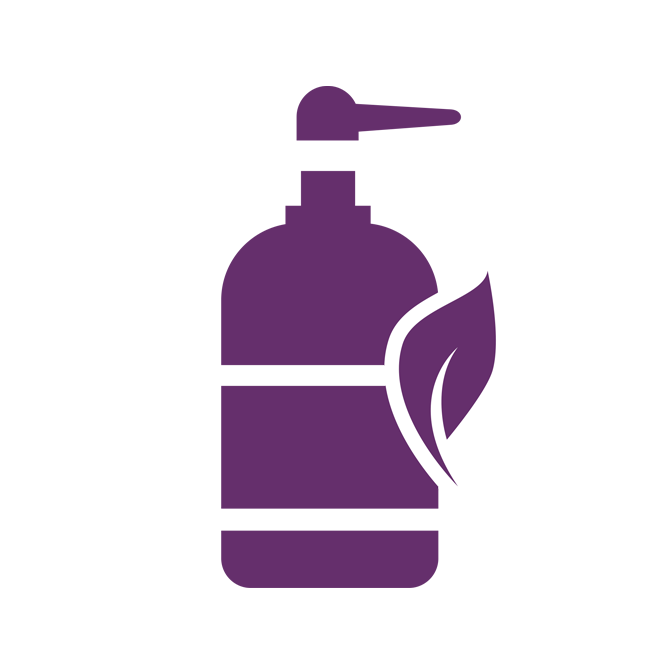
Regulatory involvement should start from the very beginning of product development. Proper planning and review at each stage of the development process is necessary to ensure that your personal care products will receive prompt acceptance to the market and be profitable. Regulatory advice, especially at the early development stage will help you to avoid costly reformulations and refusals by retailers, not to mention potential recalls and lawsuits.
We will advise you on how to design and produce personal care products tailored to your specific business needs: product presentation, marketing, and advertising requirements, ingredient-specific claims support, country-specific considerations, and registration compliance.
New Product Development Services (Click Link for Description):
Product Classification & Confirmation
Ingredient Restriction & Limitation Assessment
Compliant and Accurate French Translations
Formula Review and Development
Ingredient Safety Review/Assessment
Compliant Advertising Strategies
Cosmetic Testing Recommendations for Specific Claims
Review of Existing Labels, and Compliant Labelling Strategies
Dual Canada-US Cosmetic Label Development
Providing Guidance on Compliance Issues (GMPs)
Cosmetic Testing: Compliance/Specification Development
Stability Protocol Development
Cosmetic Notification Form (CNF) Preparation and Submissions (Canada)
WERCs System – Review and Guidance for Submissions
Registering Products Voluntary Cosmetic Registration Program (US)
Assistance with Available Industry Certifications Issued by Third-Party Organizations

The need for compliance doesn’t stop once the personal care products are launched on the market. Policy changes, expansion to new markets, or changes in advertising or formulation all require a new regulatory assessment to ensure that the personal care products are still compliant, or will meet the requirements of your new target country.
Existing Product Services (Click Link for Description):
Product Classification & Confirmation
Ingredient Restriction & Limitation Assessment
Compliant and Accurate French Translations
Formula Review and Development
Ingredient Safety Review/Assessment
Compliant Advertising Strategies
Cosmetic Testing Recommendations for Specific Claims
Reviewing Scientific Studies to Substantiate Product Claims
Requirements and Validation for Targeted Product Claims
Review of Existing Labels, and Compliant Labelling Strategies
Dual Canada-US Cosmetic Label Development
Providing Guidance on Compliance Issues (GMPs)
Cosmetic Testing: Compliance/Specification Development
Stability Protocol Development
Cosmetic Notification Form (CNF) Preparation and Submissions (Canada)
WERCs System – Review and Guidance for Submissions
Registering Products Voluntary Cosmetic Registration Program (US)
Assistance with Available Industry Certifications Issued by Third-Party Organizations
Certificate of Cosmetic GMP Compliance Issuance (Notarization only)

Mergers and acquisitions can lead to the discovery of regulatory inconsistencies which can decrease the value of an entire product line or business. For example, product claims that drive current sales may be unsupported; or production processes may be flawed.
A review of the company’s regulatory compliance to create a Risk Assessment will provide you with unique information and predict the company’s future (failed) sales, costly recalls, lawsuits, the stock value drops, investors’ distrust, and complaints. We can assist you in making an informed decision before you acquire a company or make an investment, and the report may also allow you to negotiate for a better price.

Having unique and specific claims for your product can help to set you apart in the highly-competitive landscape of personal care. We can advise, design and implement clinical trials to substantiate specific claims that are acceptable for cosmetic products, and help you build credibility in key areas for brand recognition, consistent performance, and a reputation for innovation.
We can design small-scale clinical studies that will target the specific sort of claims that you are looking to make, and action the trials with the demographic and numbers needed. Once completed, we will provide you a report on its efficacy in the specific testing areas, and advise on claims compliant with cosmetic regulations.
Clinical Trials for Claim Support Services (Click Link for Description):
Proper classification of a product is an important first step in ensuring compliance with different countries.
Consumer transparency is important when creating your ingredient listing for labels. We can advise on the best way to list your ingredients for both compliance and advertising.
When formulating or looking to expand your market, it is important to understand if your ingredients will be accepted in the target country.
dicentra can provide French translations for all labelling, advertising, and marketing materials for companies who wish to sell in Canada
It is important to have a comprehensive idea of what risks may be relevant to your product based on its usage. This can also include warnings required by California’s Proposition 65.
Formulating with your end use claims in mind is the most effective way of making your product stand out. We can advise on ingredients to include and appropriate levels to ensure that your target claims will be acceptable.
When formulating with more novel ingredients that have not already been established in the cosmetic industry, a review and safety assessment should be performed to ensure that any risk associated with those ingredients is kept to a minimum.
Compliant claims are not just limited to product label claims: this includes marketing materials, advertizing campaigns, website information, and social media. We can work with you to develop your marketing and advertizing, and provide education for those that will be promoting the products to help them effectively and compliantly answer consumer questions.
Many cosmetic companies are looking to include additional claims to target certain demographics and preferences. We can help you identify the types of testing that are needed in order to meet the requirements for these specific claims, including Gluten-Free, Long-wear, and Free From.
Reviews of scientific studies, data, and other information sources can often be enough to support simple cosmetic claims. We can help you prove your basic product claims, and advise on any additional claims that can also be supported by the weight of evidence.
There are additional claims, such as those involving allergens, that will require laboratory testing to confirm that they are free from certain ingredients, that they deliver results for specific periods of time, or that they improve a baseline by a specific amount.
Reviews of scientific studies, data, and other information sources can often be enough to support simple cosmetic claims. We can help you prove your basic product claims, and advise on any additional claims that can also be supported by the weight of evidence.
Due to the similarities between Health Canada and the FDA’s regulations for cosmetic products, it is possible to create labels for most cosmetics that are compliant in both countries. The benefits include reduced labelling cost, expansion into an additional market, and increased recognition of your brand.
Cosmetic GMP compliance is less regulated than drug compliance, but it still required to meet certain standards. We can review your existing Standard Operating Procedures (SOPs) and practices to advise on areas that could be a cause for concern, or areas that have already caused quality issues with your products.
Finished product testing is a vital part of ensuring the quality of your products, and should be done for every batch produced. We can develop the specifications for your products, and advise on testing that should be included or can be omitted, and review past testing results for trends and recommendations.
Since many cosmetics can last for a longer time, it is important to establish the stability of the product, especially if they are being shipped overseas. We can develop stability protocols for a variety of cosmetic products to ensure that the quality of the product is maintained for an acceptable period of time, or to help establish a specific expiry date.
Health Canada requires that all cosmetics that are intended to be sold in Canada go through an online notification process. We can provide the notification service for all companies inside or outside of Canada to make sure that their products are registered with Health Canada, to ensure a smooth entrance to the market.
As pre-market authorization is not required in the US, many retailers are choosing to use third-party oversight as a way of guaranteeing the safety of the products being sold in their stores. We can help you navigate the WERCs process, and advise on areas that need to be addressed in order to satisfy specific retailer requirements and to provide increased transparency to consumers on the safety of the cosmetic formulations.
Authorized third-party organizations issue industry certifications to help meet consumer demand for more ethical and responsible products. We can work with you to help ensure that your company and your products meet the standards needed to acquire these certifications.
While not a requirement for selling cosmetics in the US, the FDA encourages companies to register their products with the Voluntary Cosmetic Registration Program. If your company wishes to increase transparency regarding ingredients and compliance, we can help you comply with this program.
dicentra offers Certificate of Free Sale issuances for the cosmetic product category for any company that exports or imports products to regions where CFSs are desired or mandatory.
Cosmetics marketed in the US are not subject to pre-market approval and therefore are not reviewed prior to being introduced to consumers. A Warning Letter is issued by the FDA when they find a product on the market that is in violation of the cosmetic or advertising regulations. If you have been issued a Warning Letter, we can help you mitigate the concerns and bring your products back into compliance, so that they can be returned to the market as quickly as possible.
More specific claims will require more specific evidence to ensure that the product can deliver what it claims. The development of trial protocols and the facilitation can provide justification for claims that will make your products unique on the market. As consumer awareness increases, it is more important than ever that companies have proof that their products can actually do what they claim.